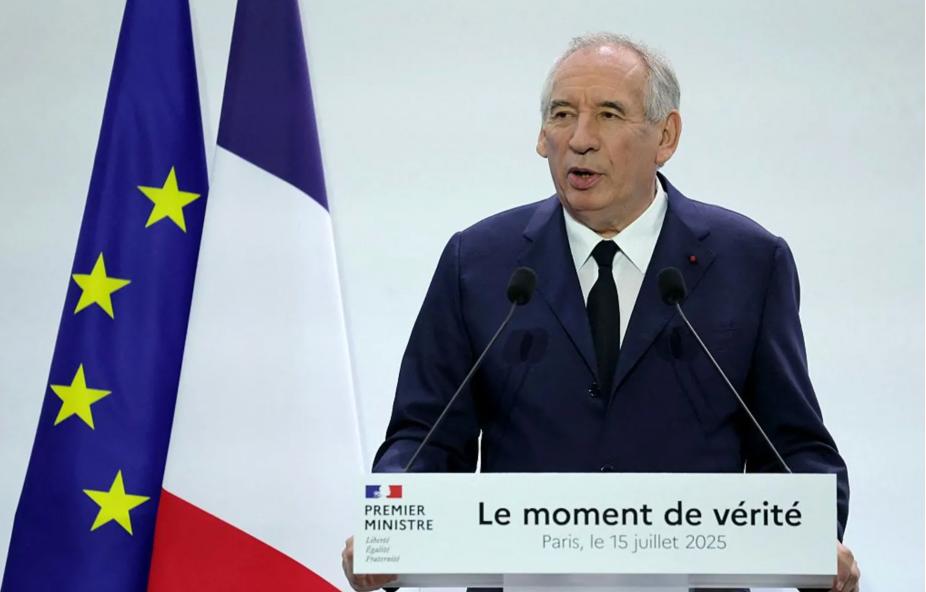Bayrou proposes scrapping holidays to tackle France’s soaring debt

Among the other proposed changes are a freeze on public spending in 2026, an end to tax exemptions for the wealthy, and a reduction in the civil service.
France’s Prime Minister François Bayrou has put forward a controversial plan to eliminate two public holidays, Easter Monday and 8 May, as part of sweeping efforts to reduce the country’s rising national debt.
The proposal, unveiled on Tuesday during a lengthy speech titled The Moment of Truth, is part of the 2026 budget aimed at slashing public expenditure while raising defence funding.
Bayrou argued that the month of May, packed with holidays, had become “a gruyère”, referring to the Swiss cheese full of holes, and stressed that reducing the number of holidays would increase national productivity.
“Easter Monday has no religious significance,” he said, calling on the French to work more as the country tries to navigate what he called a “mortal danger” of being overwhelmed by debt.
He noted that France must urgently find over €40 billion to stabilise its finances.
“If we want to stay on course, we need to find more than €40bn,” he stated, warning that debt was increasing at a rate of €5,000 every second. France aims to cut its deficit from 5.8% last year to under 4.6% next year and eventually below 3% by 2029.
Among the other proposed changes are a freeze on public spending in 2026, an end to tax exemptions for the wealthy, and a reduction in the civil service.
Bayrou also confirmed that the budget must accommodate President Emmanuel Macron’s demand to increase defence spending by €3.5 billion next year and by another €3 billion in 2027.
But it was the suggestion to scrap the two May holidays that sparked immediate backlash. Critics from both ends of the political spectrum condemned the plan. The far-right National Rally (RN) described it as an assault on French identity and workers' rights. Green Party leader Marine Tondelier voiced concern that 8 May — a day commemorating the victory over Nazism — would lose its special place in national memory.
Bayrou insisted his approach was about simple mathematics and responsible governance. “Basic arithmetic,” he said when asked about the rationale behind cutting the holidays.
However, the proposal may face a tough road in parliament. Bayrou, who took office in December after the fall of Michel Barnier’s short-lived government, lacks a stable majority. The former prime minister was ousted after left-wing and far-right MPs united to reject his deficit-cutting budget through a no-confidence vote — the first such collapse since 1962.
Now, the same political forces are threatening to bring down Bayrou’s administration. Jean-Luc Mélenchon of France Unbowed said the prime minister must be removed, while RN leader Marine Le Pen vowed to topple the government if he fails to rethink the reforms.
“He prefers to attack the French, workers and pensioners, instead of slashing wastage,” Le Pen said.
Despite the strong opposition and looming threat of another no-confidence vote, Bayrou stood firm. “We want to change things,” he declared, adding that his government would proceed “despite the risk”.
France’s fragmented parliament, split into three rival blocs since the snap election last summer, remains locked in political deadlock. A fresh election may do little to break the impasse.
Should Bayrou’s government collapse, President Macron would face the difficult choice of appointing a new leader or forming a technocratic government, both of which are likely to stir more resistance from lawmakers.
Macron’s approval ratings have dropped below 25%, and public pressure has been mounting for him to step down before the end of his term in 2027 — a demand he has consistently rejected.
